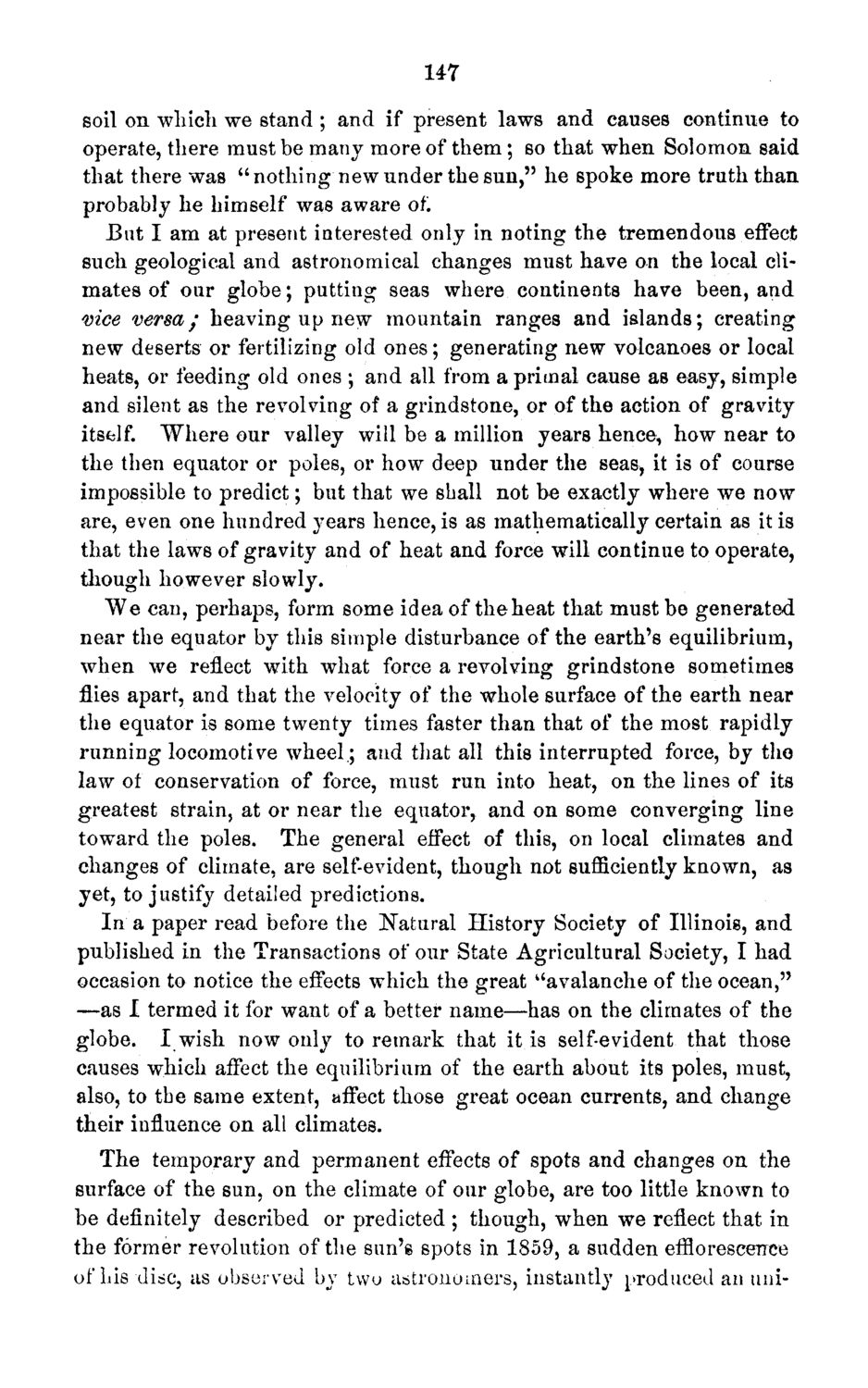| |
| |
Caption: Board of Trustees Minutes - 1871
This is a reduced-resolution page image for fast online browsing.

EXTRACTED TEXT FROM PAGE:
147 soil on which we stand ; and if present laws and causes continue to operate, there must be many more of them; so that when Solomon said that there was "nothing new under the sun," he spoke more truth than probably he himself was aware of. But I am at present interested only in noting the tremendous effect such geological and astronomical changes must have on the local climates of our globe; putting seas where continents have been, and vice versa/ heaving up new mountain ranges and islands; creating new deserts or fertilizing old ones; generating new volcanoes or local heats, or feeding old ones ; and all from a primal cause as easy, simple and silent as the revolving of a grindstone, or of the action of gravity itself. Where our valley will be a million years hence, how near to the then equator or poles, or how deep under the seas, it is of course impossible to predict; but that we shall not be exactly where we now are, even one hundred years hence, is as mathematically certain as it is that the laws of gravity and of heat and force will continue to operate, though however slowly. We can, perhaps, form some idea of the heat that must be generated near the equator by this simple disturbance of the earth's equilibrium, when we reflect with what force a revolving grindstone sometimes flies apart, and that the velocity of the whole surface of the earth near the equator is some twenty times faster than that of the most rapidly running locomotive wheel.; and that all this interrupted force, by the law of conservation of force, must run into heat, on the lines of its greatest strain, at or near the equator, and on some converging line toward the poles. The general effect of this, on local climates and changes of climate, are self-evident, though not sufficiently known, as yet, to justify detailed predictions. In a paper read before the Natural History Society of Illinois, and published in the Transactions of our State Agricultural Society, I had occasion to notice the effects which the great "avalanche of the ocean," —as I termed it for want of a better name—has on the climates of the globe. I wish now only to remark that it is self-evident that those causes which affect the equilibrium of the earth about its poles, must, also, to the same extent, affect those great ocean currents, and change their influence on all climates. The temporary and permanent effects of spots and changes on the surface of the sun, on the climate of our globe, are too little known to be definitely described or predicted ; though, when we reflect that in the former revolution of the sun's spots in 1859, a sudden efflorescence of Lis disc, as observed by two astronomers, instantly produced an uni-
| |